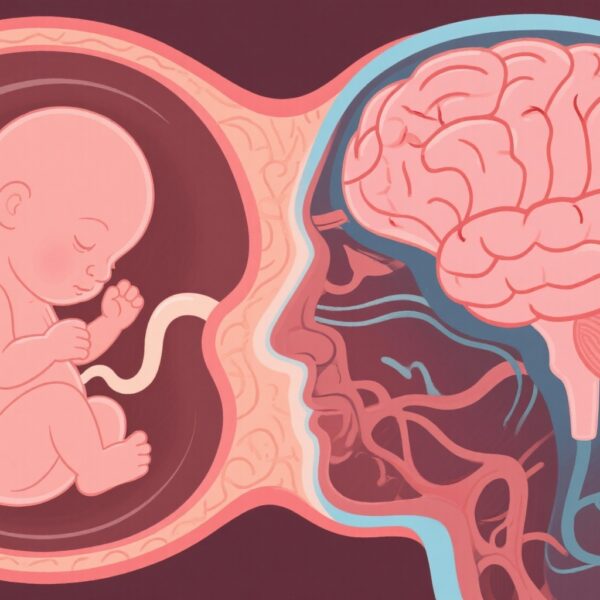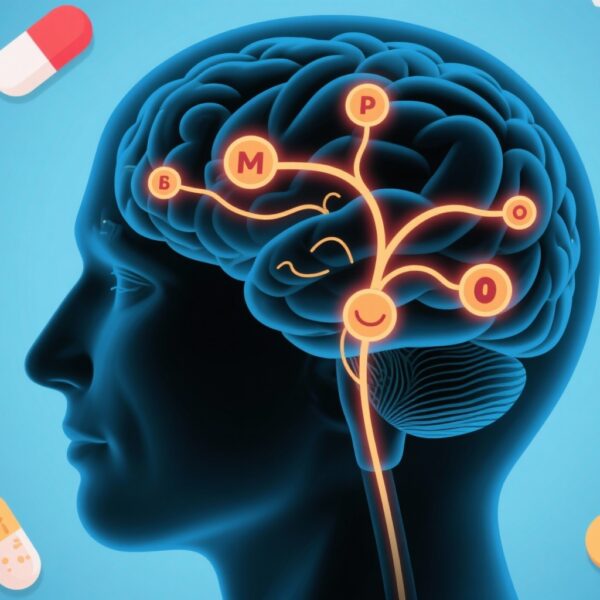Highlight
The KARMA-Dep 2 randomized clinical trial evaluated serial ketamine infusions versus midazolam as adjunctive therapy in inpatients with major depressive episodes, finding no significant difference in antidepressant efficacy or secondary outcomes, including safety, cognitive effects, or quality of life, through six months of follow-up.
Despite ketamine’s growing off-label use for depression, this trial’s robust placebo-controlled design challenges its presumed advantage when combined with usual inpatient psychiatric care.
Study Background
Major depressive disorder (MDD) remains a leading cause of disability worldwide, with substantial morbidity, relapse rates, and treatment resistance leading to frequent hospitalizations. Despite diverse pharmacological and psychotherapeutic options, a significant proportion of patients experience inadequate responses, especially during severe depressive episodes requiring inpatient care.
Ketamine, an NMDA receptor antagonist, has gained interest for its rapid antidepressant effects after single-dose administration, potentially providing relief even in treatment-resistant cases. The practice of serial ketamine infusions has emerged to enhance and prolong these benefits. However, robust placebo-controlled evidence, especially compared to psychoactive control agents like midazolam, is limited, raising questions about the true efficacy and safety of repeated ketamine treatment in clinical settings.
Study Design
The KARMA-Dep 2 trial was a double-blind, randomized, midazolam-controlled pragmatic trial conducted at an academic center in Ireland from September 2021 to August 2024. It enrolled adults aged 18 years or older, hospitalized with a DSM-5 diagnosis of major depressive episode (unipolar or bipolar), and with a baseline Montgomery-Åsberg Depression Rating Scale (MADRS) score ≥20, indicating at least moderate depression severity.
Participants were randomized 1:1 to receive up to eight intravenous infusions administered twice weekly of either ketamine at 0.5 mg/kg or midazolam at 0.045 mg/kg. These infusions were given adjunctive to the usual-care pharmacotherapy and other routine psychiatric inpatient interventions. The study followed participants for six months after the last infusion to assess durability of effects.
The primary outcome was change in observer-rated depressive symptoms, measured by the MADRS score from baseline to end of treatment. Secondary outcomes comprised self-reported depression severity (using the Quick Inventory of Depressive Symptoms, Self-Report [QIDS-SR]), safety and tolerability profiles, cognitive effects, health care costs, and quality of life metrics.
Key Findings
The trial randomized 65 participants (mean age 53.5 years, 59.7% male), with 62 included in the final analysis. The primary outcome analysis showed no significant difference in end-of-treatment MADRS scores between the ketamine and midazolam groups. The adjusted mean difference was -3.16 points (95% confidence interval [CI], -8.54 to 2.22; P = .25), corresponding to a modest effect size (Cohen d = -0.29) favoring ketamine but lacking statistical significance.
Similarly, the secondary outcome of self-reported depression severity via QIDS-SR showed virtually no between-group difference (adjusted mean difference -0.002; 95% CI, -2.71 to 2.71; P > .99), with an effect size near zero (Cohen d = -0.0004).
Other secondary outcomes, including cognitive assessments, health care costs, and quality of life measures, revealed no significant differences between treatment arms.
An interesting observation was that most patients and raters correctly guessed treatment allocation, suggesting imperfect blinding which could potentially confound subjective outcomes.
No new safety signals emerged from repeated ketamine infusions during the inpatient stay or across the 6-month follow-up, indicating a generally tolerable safety profile comparable with midazolam.
Expert Commentary
The KARMA-Dep 2 trial contributes substantially to the evidence base on ketamine’s role as an adjunctive intervention for severe depression in inpatient settings. While previous smaller or uncontrolled studies suggested rapid benefits of ketamine, this rigorous, psychoactive placebo-controlled design found no significant efficacy advantage over active control when both were administered alongside comprehensive usual inpatient care.
This finding invites careful reconsideration of ketamine’s utility in routine clinical practice, particularly its cost-effectiveness and long-term therapeutic value. Notably, the relatively modest sample size and the pragmatic nature of the trial may limit generalizability to community-based or outpatient populations.
Correct treatment guessing by participants and raters suggests that the psychoactive effects of ketamine might unblind treatment allocation, potentially biasing subjective outcomes in studies without active controls. Using midazolam as comparator here partially overcomes that limitation, strengthening the validity of null results.
Mechanistically, ketamine’s NMDA receptor antagonism mediates rapid glutamatergic modulation and synaptic plasticity changes, yet whether repeated infusions meaningfully translate into sustained clinical remission remains controversial.
Future research should focus on identifying patient subgroups who might preferentially benefit, optimize dosing regimens, and integrate ketamine within multimodal therapeutic frameworks while monitoring safety vigilantly.
Conclusion
The KARMA-Dep 2 trial’s findings suggest that serial ketamine infusions, when added to usual inpatient psychiatric care, do not confer significant additional clinical benefit over midazolam in reducing depressive symptoms or improving secondary outcomes. The data underscore the importance of robust placebo-controlled methodology and cautious interpretation of ketamine’s antidepressant efficacy in complex real-world clinical settings.
These results should prompt clinicians and health systems to critically weigh the benefits, risks, and costs of adopting serial ketamine infusion protocols broadly and encourage further research to delineate ketamine’s precise role in depression management.
Funding and Trial Registration
This investigator-led trial was supported by appropriate academic and clinical research funding sources (details available in the original publication). The study is registered at ClinicalTrials.gov under identifier NCT04939649.
References
Jelovac A, McCaffrey C, Terao M, Shanahan E, Whooley E, McDonagh K, McDonogh S, Loughran O, Shackleton E, Igoe A, Thompson S, Mohamed E, Nguyen D, O’Neill C, Walsh C, McLoughlin DM. Serial Ketamine Infusions as Adjunctive Therapy to Inpatient Care for Depression: The KARMA-Dep 2 Randomized Clinical Trial. JAMA Psychiatry. 2025 Oct 22:e253019. doi: 10.1001/jamapsychiatry.2025.3019. Epub ahead of print. PMID: 41123905; PMCID: PMC12547681.



